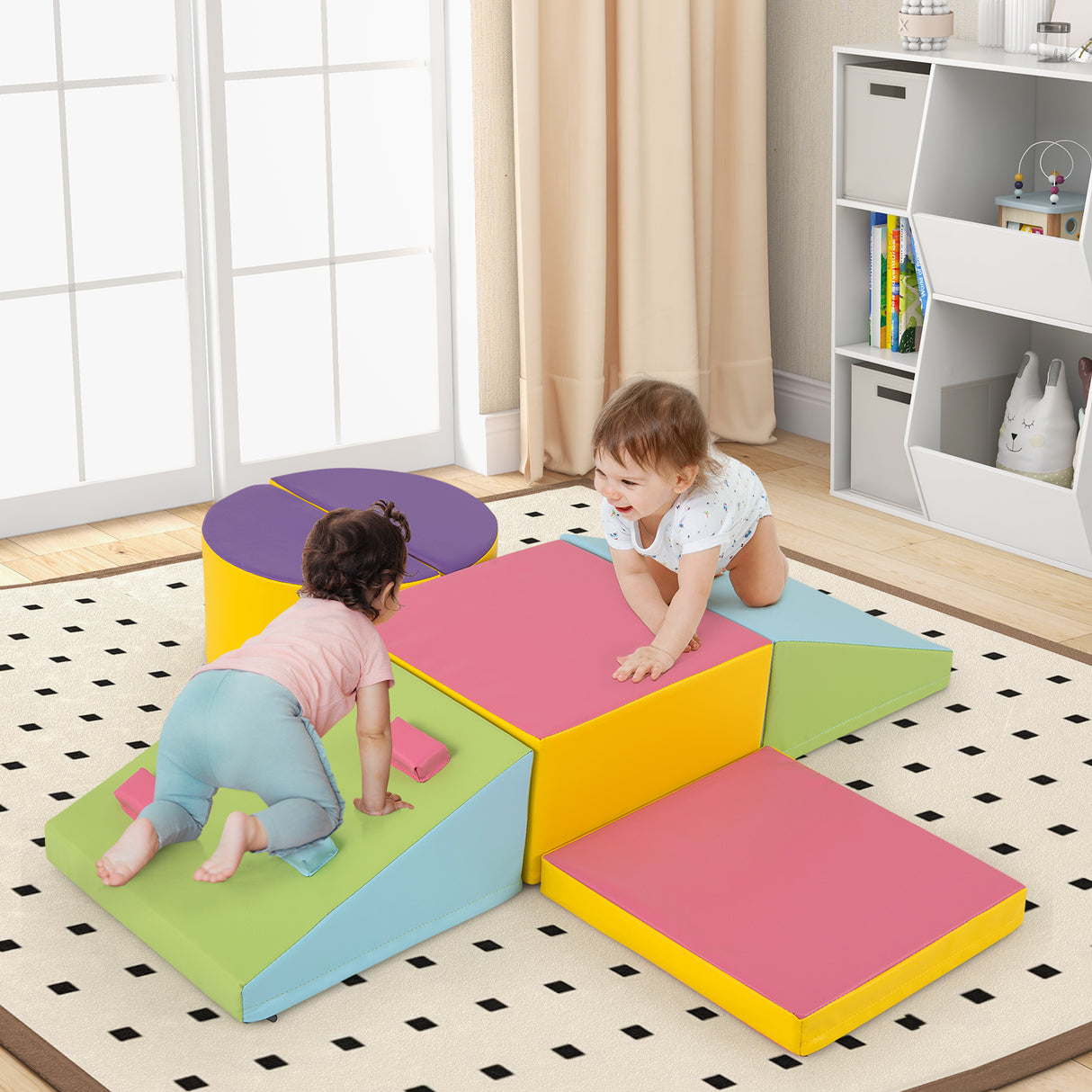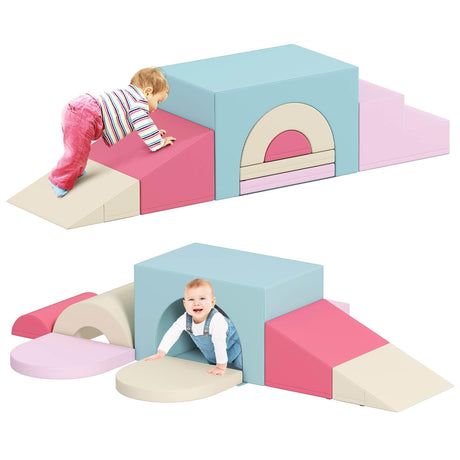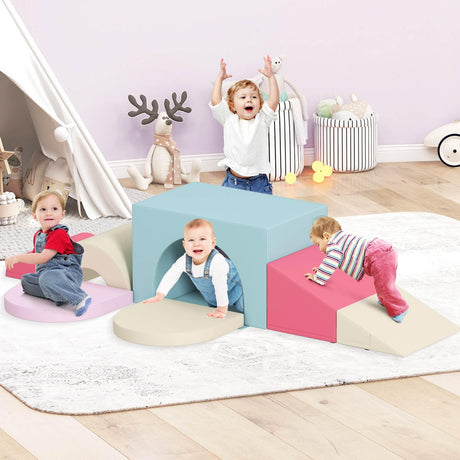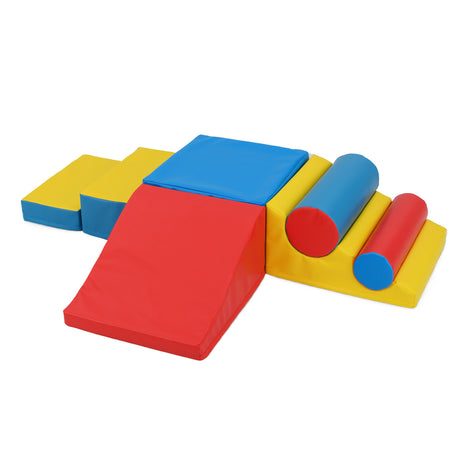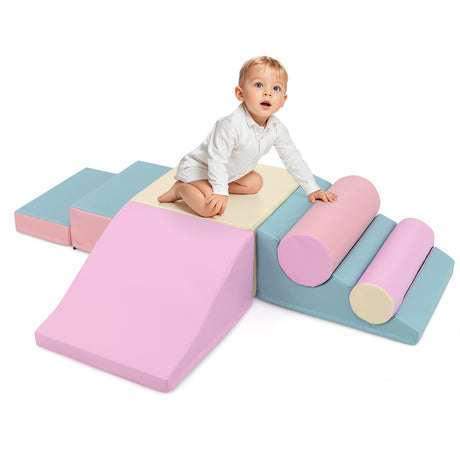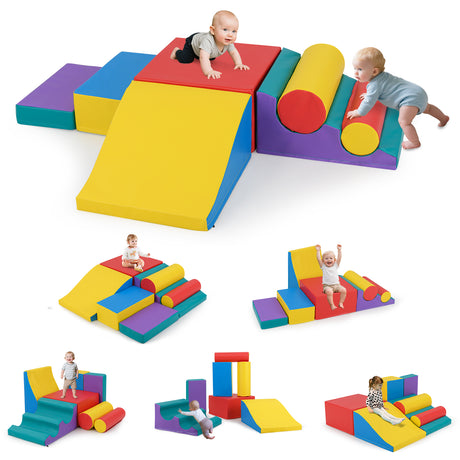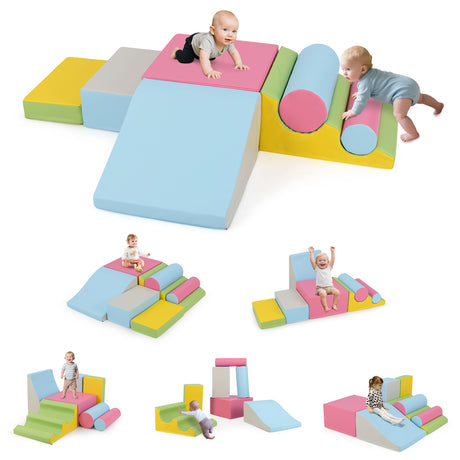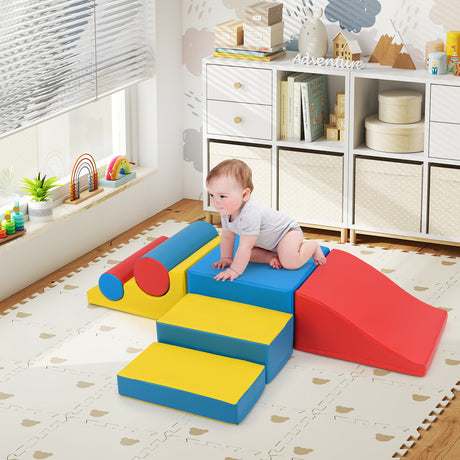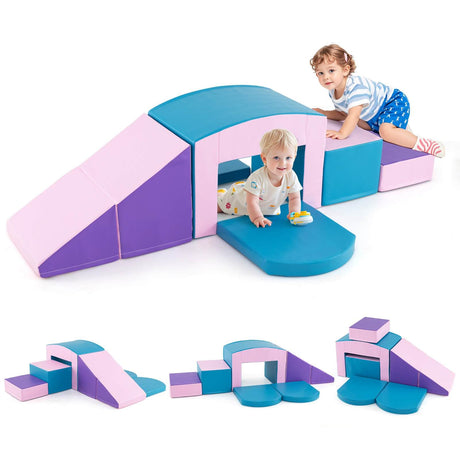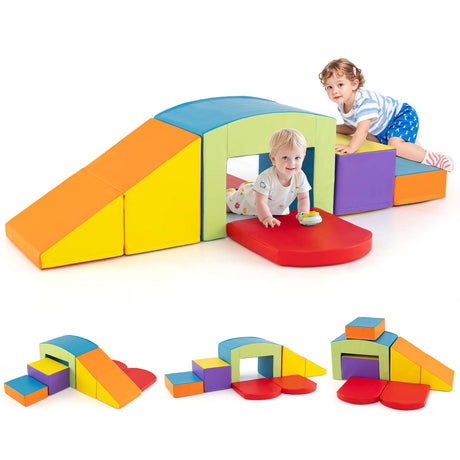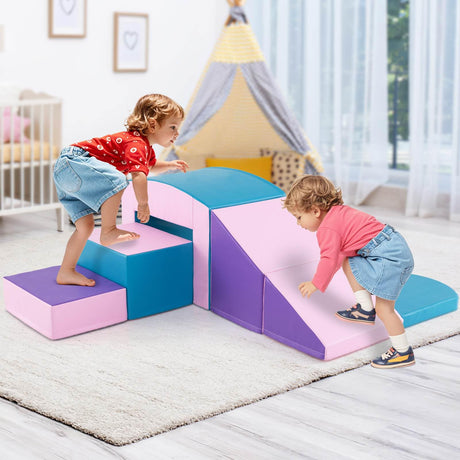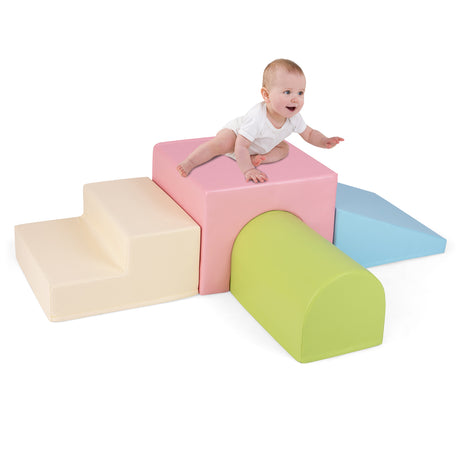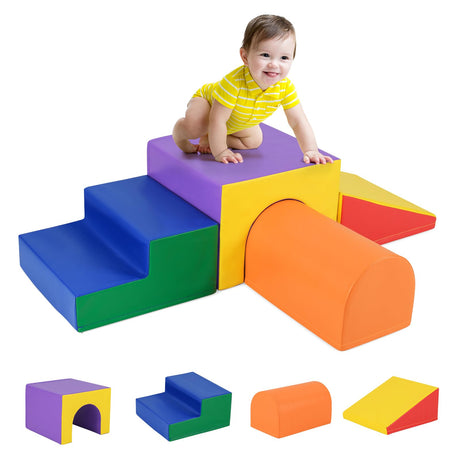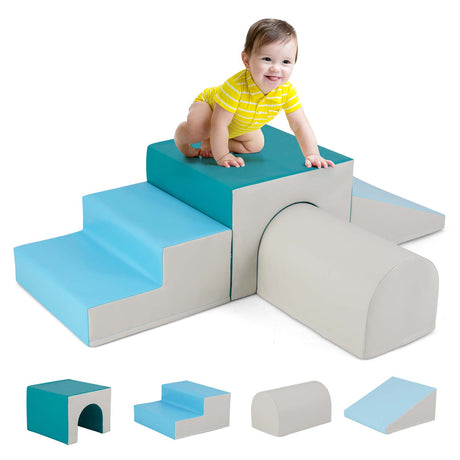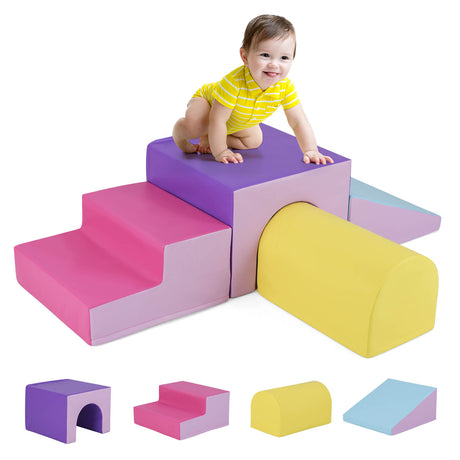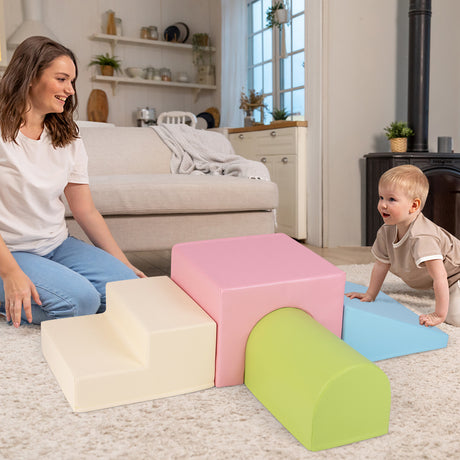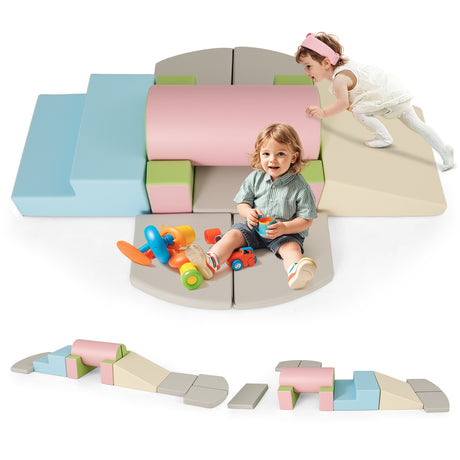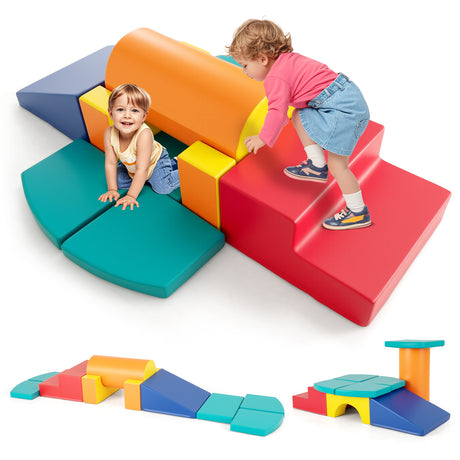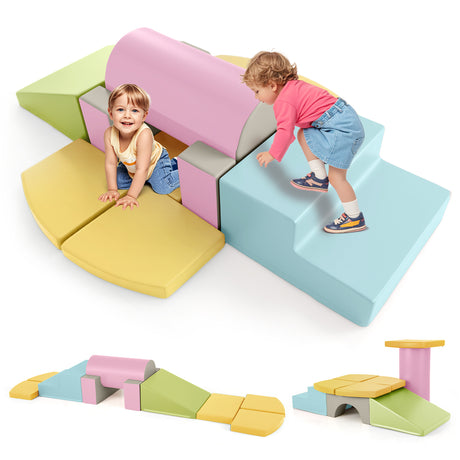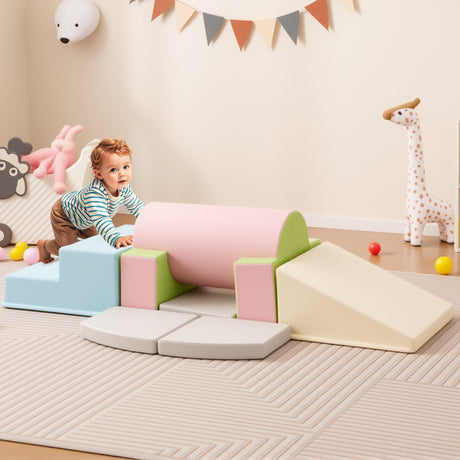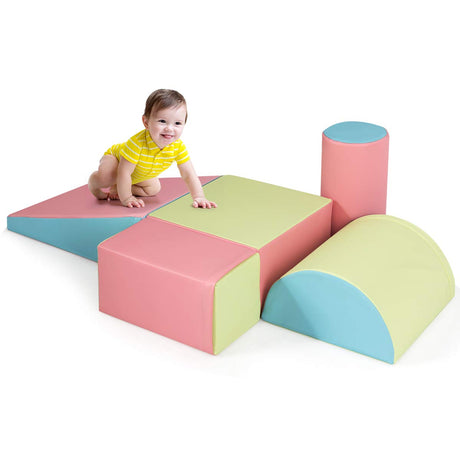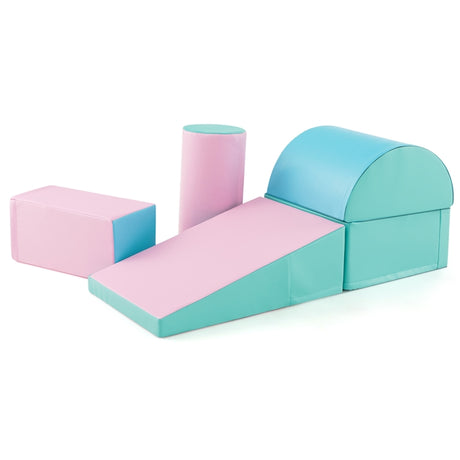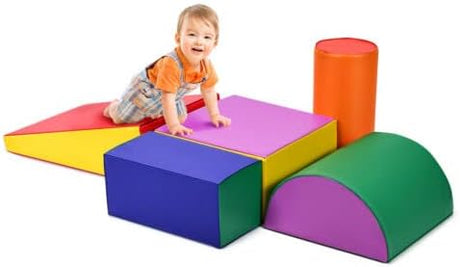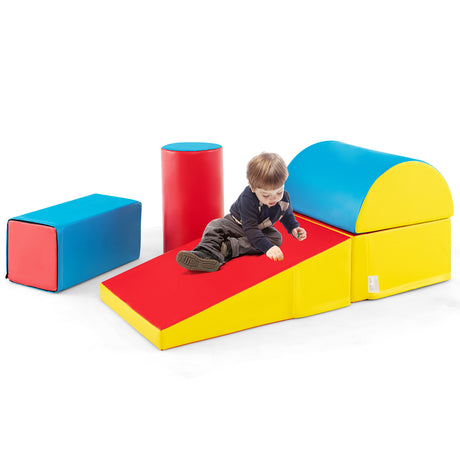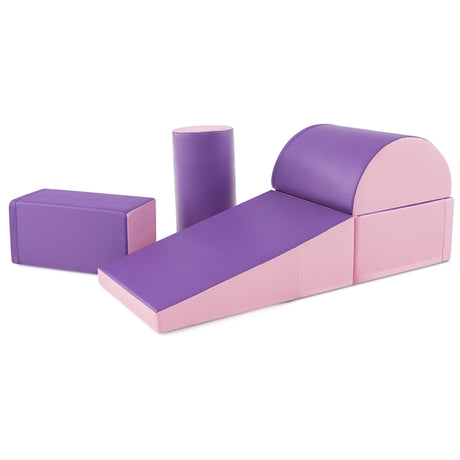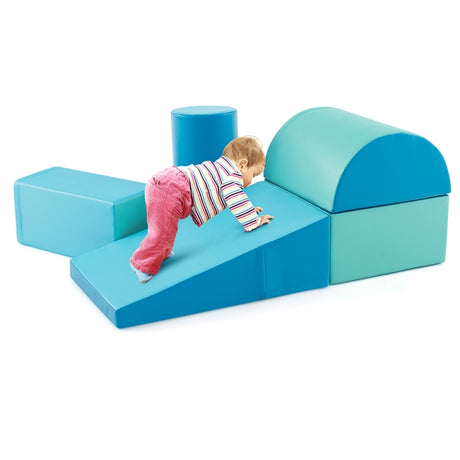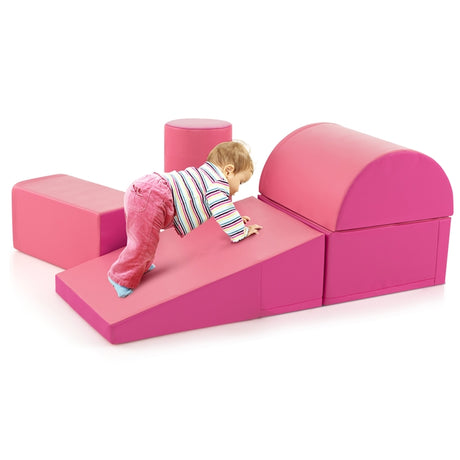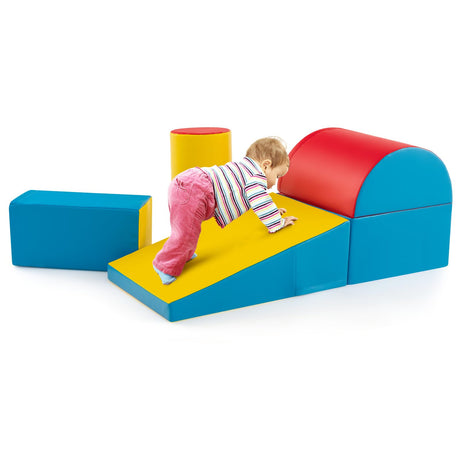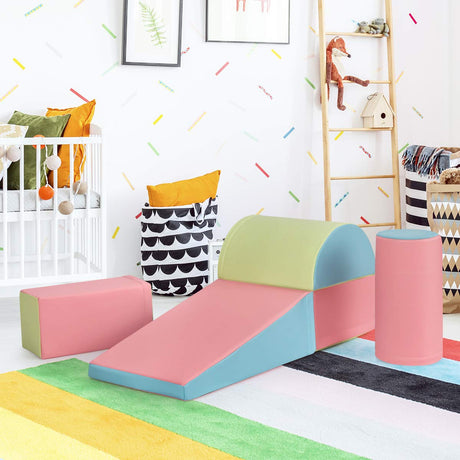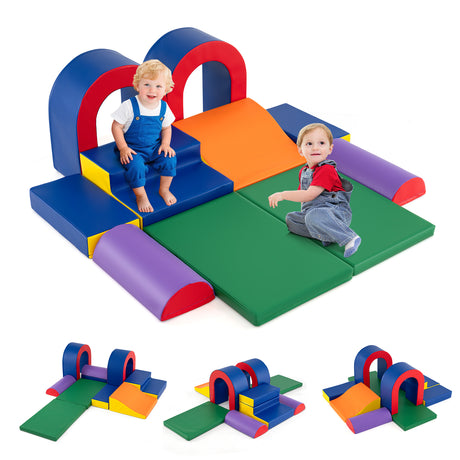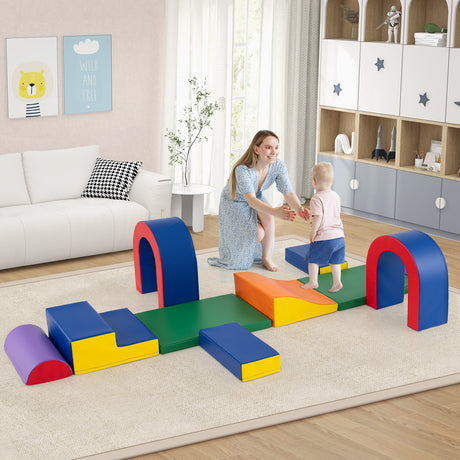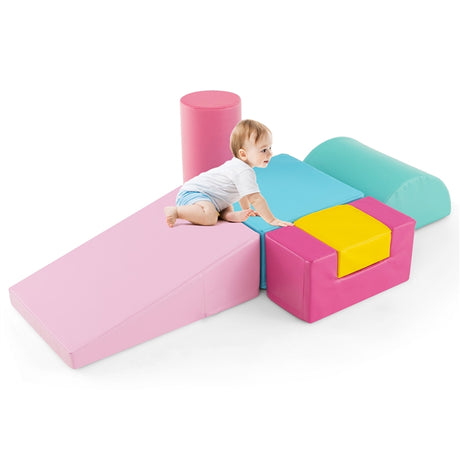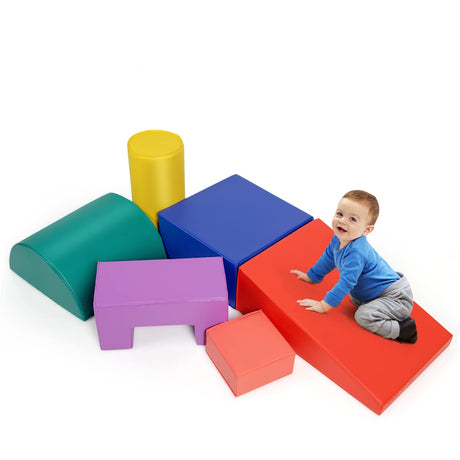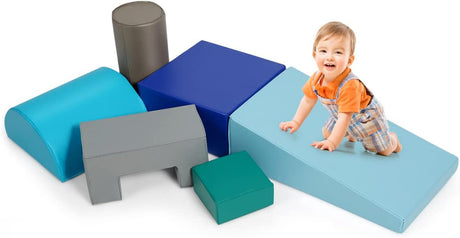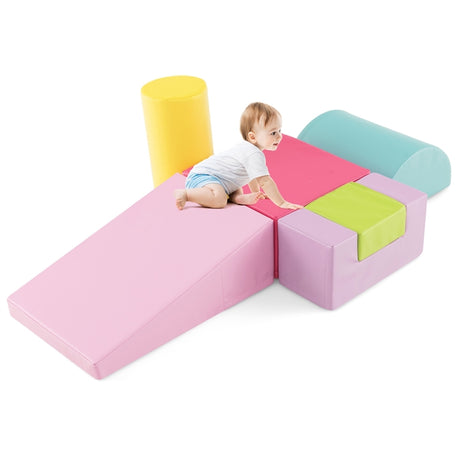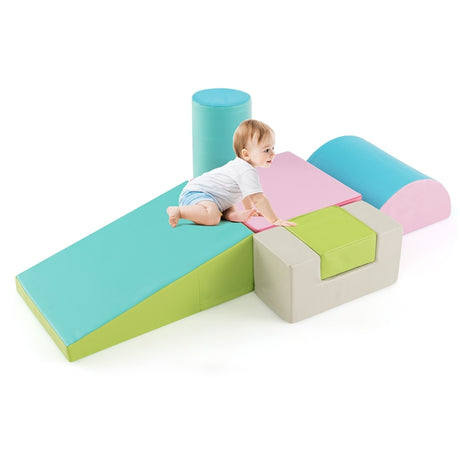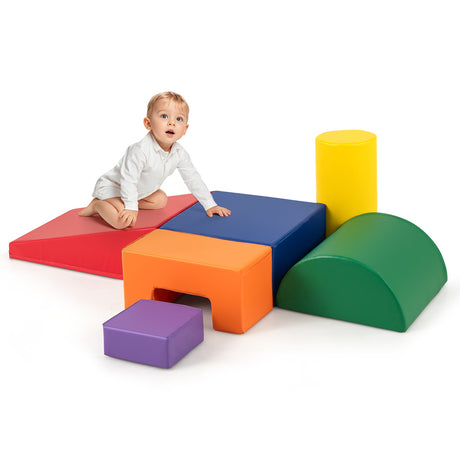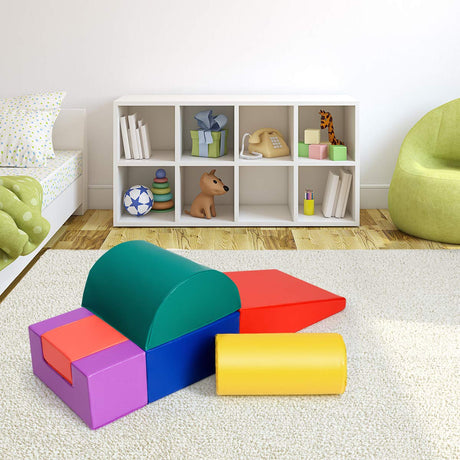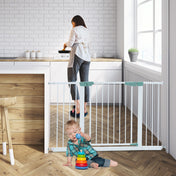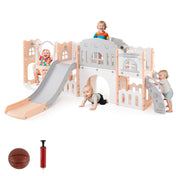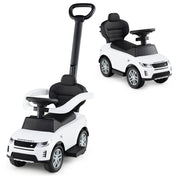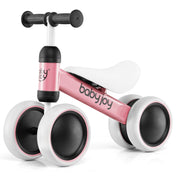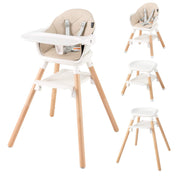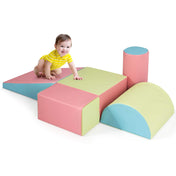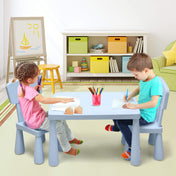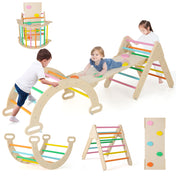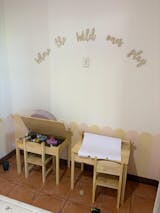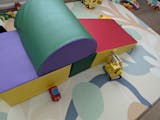Inside this Article:
How Do Foam Blocks Impact a Baby's Growth
How to set up a safe and fun foam block play area at home for your baby
Nothing compares to watching a baby explore the world for the first time. Every movement and little discovery feels magical. As parents and caregivers, we want to provide the safest, most supportive environment for this incredible journey.
How Do Foam Blocks Impact a Baby's Growth
Wooden play structures are great for older toddlers (24 months and up). However, they are not ideal for babies just starting to crawl, climb, and explore. Foam blocks for kids and soft play equipment are great for early exploration and physical development.
1. Designed for Developmental Milestones
Foam climbing blocks are tailored to support important milestones:
- Tummy time (3–6 months)
- Rolling and crawling (6–9 months)
- Pulling to stand and cruising (9–12 months)
- Climbing and balancing (12–24 months)
Each piece can help your baby move in the right way at the right time. It gently challenges their strength and coordination as they grow.
2. Physical and Cognitive Growth Combined
Soft play equipment doesn't just build muscles — it builds brains.
Through climbing, crawling, and balancing, babies learn:
- Problem-solving (How do I get over this block?)
- Cause and effect (If I push this, what happens?)
- Spatial awareness (How far is that step?)
Every movement on soft play blocks strengthens hand-eye coordination, gross motor skills, and critical thinking.
3. Emotional Confidence and Independence
As babies explore safely and succeed in small challenges, they build:
- Self-esteem (I did it!)
- Emotional regulation (Managing frustration when something doesn’t work right away)
- Risk awareness (Learning boundaries safely)
And because the equipment is soft and forgiving, even a tumble becomes a positive early learning experience.
4. Safe Play = Happy Parents
Big foam blocks allow parents and caregivers to relax a bit more.
Knowing that the equipment is soft, non-toxic, and durable means you can:
Let your child play independently while you cook, clean, or simply enjoy a cup of coffee nearby.
Minimize the worry of hard falls or sharp edges.
5. Built to Grow With Your Child
Good children’s foam blocks are modular and versatile:
- Use large mats and small wedges for active play.
- Build obstacle courses for crawling babies.
- Set up climbing towers for energetic toddlers.
- One set can support years of play and adapt to your child's growing abilities.
6. Easy to Clean and Store
Today’s soft play sets are crafted with reinforced engineered leather. Here are the merits of this type of material:
- Easy to wipe clean (essential for drool, spills, and germs)
- Durable without being too stiff
- Resistant to tearing or puncturing
- Many sets are also lightweight and stackable, making storage easy even in smaller spaces.
7. Inclusive for All Abilities
Soft play equipment is not just for typically developing children.
It’s especially valuable for:
- Sensory processing (textures, weight, balance stimulation)
- Physical therapy (for muscle tone, mobility work)
- Social skills (learning to share and navigate in group settings)
- Classrooms, therapy clinics, and homes alike use soft play as a fun and effective tool for a wide range of children.
Types of Soft Play Modules
We offer a wide variety of structures designed to stimulate different skills:
- Slides: Teach gravity, weight, and texture through cause-and-effect play.
- Tunnels: Strengthen core muscles, promote crawling, and improve balance.
- Arches: Engage the full body in crawling exercises to encourage faster gross motor development.
- Rollers: Improve balance and core strength while introducing the concept of gravity.
- Steps/Stones: Develop balance, coordination, and climbing skills.
- Beams: Enhance balance and spatial awareness; our anti-skid bottoms prevent sliding.
- Cubes: Great for climbing or stacking, promoting fine motor skills and problem-solving.
- Mats: Provide maximum comfort and safety under play areas.
- Ball Pits: Stimulate sensory learning, encourage group play, and aid in emotional regulation.
How to set up a safe and fun foam block play area at home for your baby
1. Choose a Soft, Stable Surface
Place the foam blocks on a padded play mat, carpet, or soft flooring to add an extra layer of cushioning.
Avoid setting them up directly on hard floors like tile or wood to minimize the risk of slipping or hard falls.
2. Select an Open, Uncluttered Space
Set up the blocks in a wide open area with plenty of room around them.
Make sure there are no sharp furniture edges or hard objects nearby.
If possible, use a dedicated play corner or a gated play zone.
3. Arrange the Blocks for Different Challenges
Low, simple setups for younger babies just crawling and climbing.
As they grow older, you can make more complex setups, like mini obstacle courses. This encourages advanced movement and exploration.
Vary heights and shapes to keep the experience interesting but manageable.
4. Supervise, but Let Them Explore
Always supervise play, but try not to intervene unless necessary.
Let babies figure out how to move around the blocks themselves — this builds problem-solving and confidence.
5. Keep It Clean
Foam blocks can collect dust and germs. Wipe them down regularly with mild soap and water or baby-safe disinfectant wipes.
6. Incorporate Play Ideas
Turn block time into games like "climb the mountain," "find the treasure" (hide a toy behind a block), or "build and rebuild" challenges.
Encourage different movements: crawling under, stepping over, climbing up, or sliding down.
How to Clean and Maintain Your Soft Play Equipment
Keeping your soft play equipment fresh, safe, and long-lasting is easier than you think! Here's how:
Daily/Weekly Maintenance:
- Wipe down after use: Use a soft cloth with mild soap and warm water. Avoid abrasive cleaners.
- Disinfect regularly: Especially if used in public or shared spaces. Use a child-safe disinfectant spray.
- Dry immediately: Always dry surfaces after cleaning to prevent mold or mildew.
Monthly Deep Cleaning:
- Remove dust from crevices with a handheld vacuum or gentle brush.
- Inspect for wear and tear: Check seams, zippers, and covers for any damage and address immediately.
Storage Tips:
- Keep indoors: Extended outdoor exposure (especially sunlight and moisture) can degrade foam and covers.
- Stack carefully: When not in use, stack modules neatly to prevent deformation.
- Use protective covers: If storing for a longer time, to protect against dust and accidental damage.
Longevity Tips:
- Rotate modules: If kids are using the same pieces over and over, rotate the layout to even out the wear.
- Teach gentle play: Soft play equipment is strong, but teaching kids not to jump or dive hard can help it last longer.
Ready to Create a Safe, Magical Play Space?
Check out our full range of Soft Play Equipment today. See why many parents, teachers, and therapists trust Baby Joy. We help support children’s growth and happiness.

